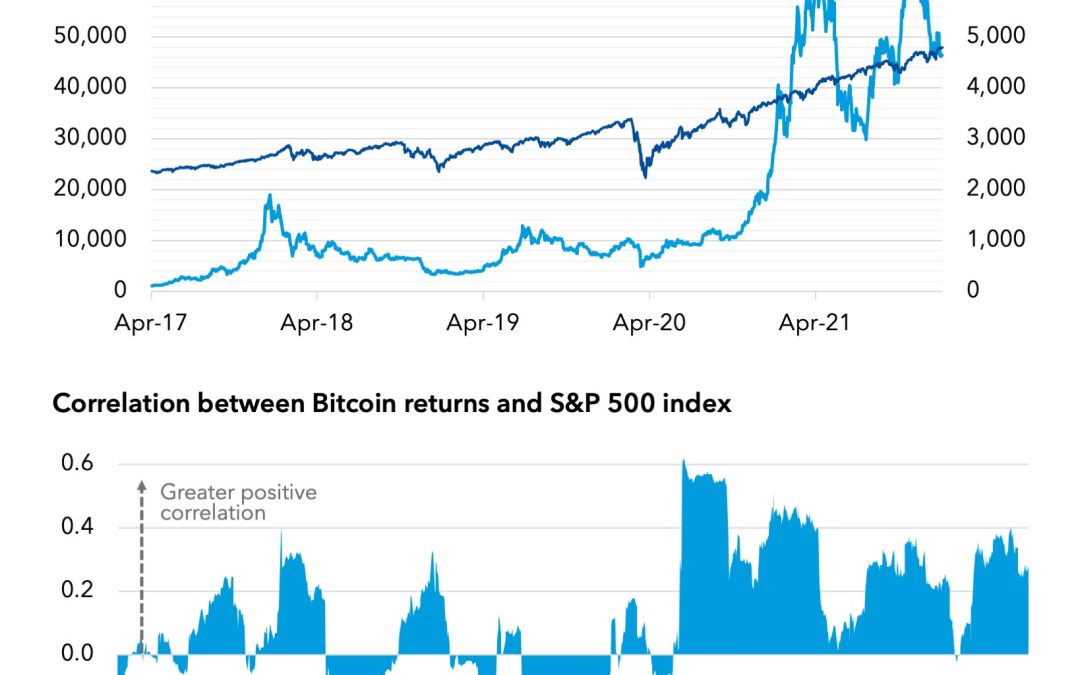Crypto is no longer an obscure asset class within the financial ecosystem, but a growing correlation with the stock market undercuts the “investment hedge” role of Bitcoin (BTC) and other cryptocurrencies, according to new International Money Fund (IMF) research.
A blog post accompanying the survey highlights new risks associated with the growing interconnectedness between virtual assets and financial markets. Penned by IMF Monetary and Capital Markets Department director Tobias Adrian as well as economist Tara Iyer and Research deputy division chief Mahvash S. Qureshi, the article claims that the increasing correlation between crypto assets and stocks “limits their perceived risk diversification benefits and raises the risk of contagion across financial markets.”
“Crypto assets such as Bitcoin have matured from an obscure asset class with few users to an integral part of the digital asset revolution,” the article read, adding that this transition comes along with financial stability concerns.
Nothing that BTC and Ether (ETH) rarely correlated with major stock indexes before the pandemic, the authors agreed that crypto assets helped diversify risk for investors by acting as a hedge against swings in other asset classes. “But this changed after the extraordinary central bank crisis responses of early 2020,” the article reads, adding that crypto and stocks surged hand in hand as investors’ risk appetite grew.
The correlation coefficient between BTC and the S&P 500 index has jumped 3,600%, going from 0.01 to 0.36 after April 2020. This means that the two asset classes have been more closely rising and falling together since the coronavirus pandemic.
Related: What should the crypto industry expect from regulators in 2022? Experts answer, Part 1
With stronger correlation comes greater risks for Bitcoin, according to IMF experts. The growing interconnectedness between crypto and equity markets would permit the transmission of shocks that can destabilize financial markets. Noting that crypto assets are no longer on the fringe of the financial system, the authors summarized:
“Given their relatively high volatility and valuations, their increased co-movement could soon pose risks to financial stability especially in countries with widespread crypto adoption.”
The experts further called for a coordinated global regulatory framework “to guide national regulation and supervision and mitigate the financial stability risks stemming from the crypto ecosystem.”
Last month, IMF chief economist Gita Gopinath made a similar call for a global policy regarding crypto. She argued that if countries were to ban crypto then they would not have any control over offshore exchanges that are not subject to their country’s regulations.










